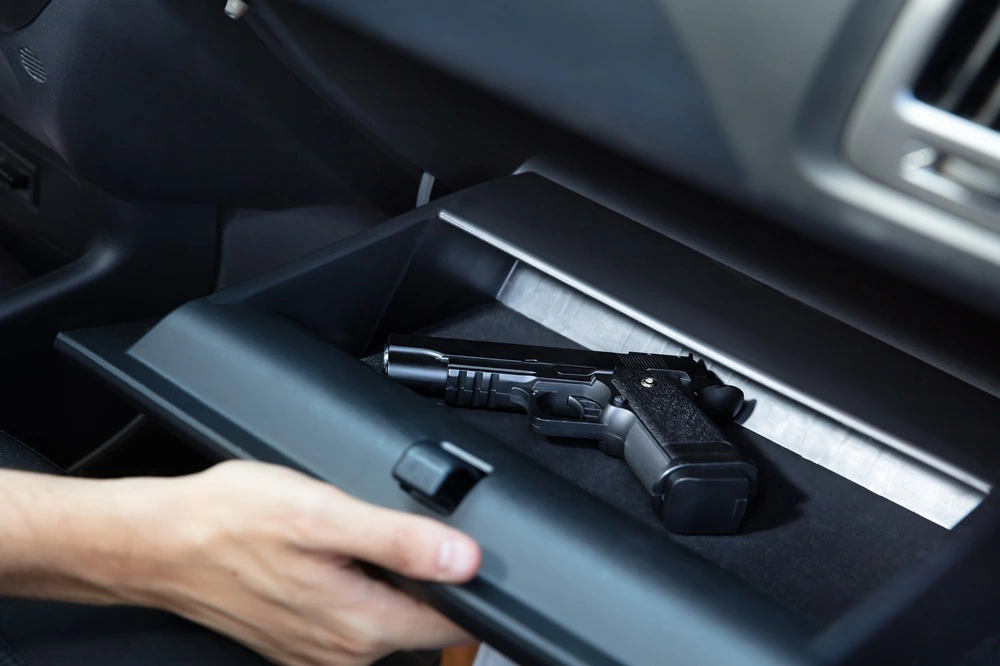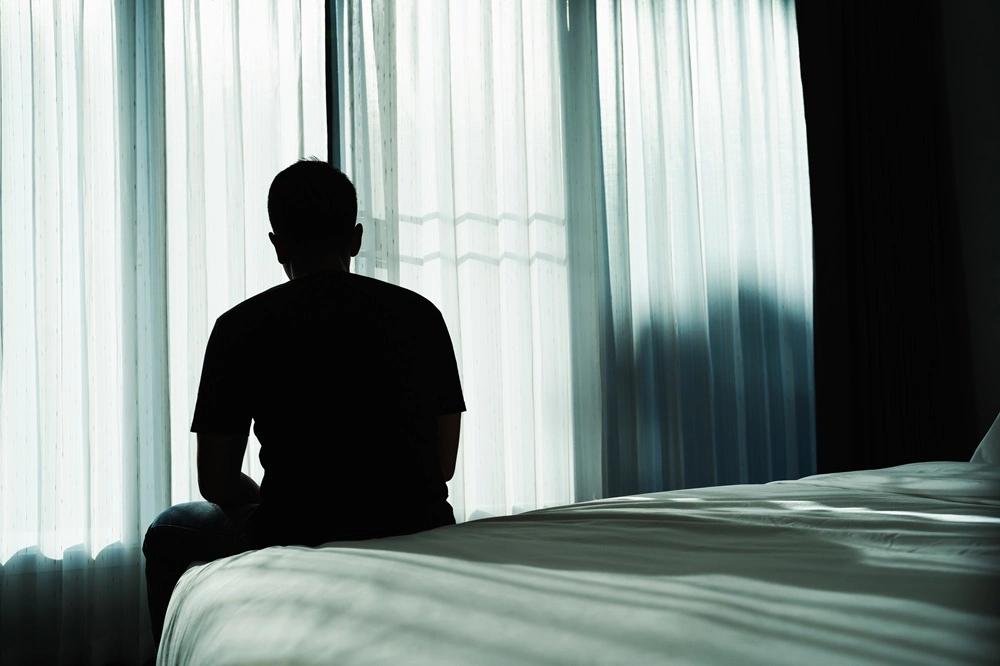Gounaris Abboud: Your Dayton Defense Against Weapons Charges
To fight charges involving improperly handling firearms, you need the skilled team at Gounaris Abboud. When you hire us, you can expect:
- Empathy: Our team knows how stressful and life-altering these charges can be and will work tirelessly to help you avoid a conviction.
- Knowledge of the law: We have extensive knowledge of Ohio laws regarding the improper handling of a firearm in Dayton courts.
- Track record: Our team has helped numerous clients avoid criminal convictions and jail time.
- Client-focused: Gounaris Abboud is dedicated to offering personalized, aggressive representation with honest communication at every stage.
If you’re facing a charge of improperly handling firearms in Ohio, turn to our team of criminal defense lawyers for trusted and tailored legal guidance.
What Does Improper Handling of a Firearm Mean in Ohio?

In Ohio, improper handling of a firearm means having a loaded gun in a vehicle without possessing the appropriate permits or discharging a firearm while you’re in or on a vehicle. It also includes possessing or transporting a firearm while intoxicated and not alerting police officers that you have a concealed carry license and a gun in the vehicle during a traffic stop.
Keep in mind that any vehicle occupant can be charged with improper handling under Ohio law. It is also important to know that firearm laws in Ohio changed in 2022 (Ohio becoming a constitutional carry state) and in April of 2023 and these changes can impact the offense of improper handling of a firearm.
Common Examples of Improper Handling
It’s not always easy to know when handling a firearm becomes improper. To understand what improperly handling firearms charges can look like in real-life scenarios, consider these examples.
Discharging a firearm while in or on a motor vehicle is a common charge in Ohio and can include shooting at animals on the road, which is only permitted under very specific instances and never during deer season. These rules apply whether the car is moving or not. Even if the car is parked, you may not discharge the weapon.
When transporting a firearm, you can do so only in a closed box or case, in a compartment only reached by leaving the vehicle and in a secure rack made for that purpose, or with the weapon stripped or the action open or in plain sight. If the weapon is secured in any other way, you can face misdemeanor offenses.
Additionally, you can’t knowingly transport or possess a loaded firearm of any type if you’re under the influence of any controlled substance or alcohol in Ohio. This part of the law applies to both passengers and drivers. In other words, if you would be considered too intoxicated to drive, then you can’t legally have a firearm in the vehicle.
If you’re a concealed handgun license holder, you must ensure that you alert any law enforcement officer who approaches your vehicle that you have a gun if they stop you. Otherwise, you could be charged with improperly handling firearms. You also need to remain in the vehicle as instructed, keep your hands in plain sight, and not touch the firearm.
Exceptions to Improper Handling
There are exceptions to the improper handling laws that you need to be aware of to ensure your gun rights are protected. For instance, discharging a gun in a vehicle is allowed if you’re shooting at coyotes or groundhogs at any time other than deer season.
It’s also allowed if the vehicle is in an unincorporated area zoned for agricultural purposes or if you’re using the gun for self-defense or in defense of another person.
If you’re not under the influence of drugs or alcohol, don’t have a prior firearms conviction, and don’t fire the weapon toward an occupied structure or a structure used for vehicular traffic, you can also potentially avoid a charge of improperly handling firearms. Additionally, with the appropriate permits, you can use firearms while hunting as well as in a firing range.
What Are the Penalties for Improper Handling in Ohio?
Being convicted of improperly handling firearms can carry a variety of penalties in Ohio. Depending on your situation, penalties can range from a $150 fine and no jail time to 10 years in jail and a fine of $20,000.
The special circumstances of your alleged offense, whether you have previous firearm convictions, and the type of weapon used can all impact the potential penalties you encounter. Take a closer look at what these penalties can involve.
Misdemeanor Charges
Misdemeanor charges can have a wide range of consequences. For instance, while you can face fines without jail time, a first-degree misdemeanor charge carries up to 180 days in jail and a fine of $1,000. You may also need to take a mandatory firearm safety course.
Most people assume that misdemeanor offenses don’t involve jail terms, but they can in certain circumstances. That’s why it’s vital to have experienced criminal defense lawyers fighting for your rights, no matter the charges you are facing.
Criminal Charges
If you allegedly committed felony offenses, like knowingly discharging a firearm in a vehicle or having easy access to a loaded firearm within the vehicle, you can face jail time that ranges from a few months in jail to years behind bars, as well as thousands of dollars in fines. A first-degree felony conviction for improperly handling firearms can mean up to 10 years in jail and up to $20,000 in fines.
With a felony conviction, you can lose your gun rights. A felony can also impact your future job opportunities and traveling, as well as any child custody arrangements you have.
With such far-reaching consequences, securing skilled representation is critical for protecting your future in many ways. The right lawyer can safeguard both your legal rights and your quality of life.
Collateral Consequences: The Ripple Effect

Serious crimes that result in felony convictions can do more than earn you fines and prison time. They can have repercussions in other areas of your life.
For example, a conviction can impact your civil rights. It can lead to firearm restrictions that essentially don’t allow you to possess any firearms. You can also lose your right to vote.
After a felony conviction, you can have a much harder time finding employment. Employers may hesitate to hire someone who’s a convicted felon, and you may not be able to even apply for some jobs, including those that require security clearance or handling firearms. If you’re trying to get child custody, serious convictions can affect your options in that landscape, too.
Housing becomes an issue as well since most landlords will perform a background check and may not rent a property to someone with a felony conviction. If you’re thinking about going back to school, you may encounter obstacles because you might not be able to get financial aid.
Additionally, a conviction for a felony offense impacts immigration status and imposes travel restrictions on you. Many countries won’t allow you in if you’re a convicted felon, and if you’re not a U.S. citizen, you could face deportation.
Perhaps one of the most serious consequences is the stigma associated with a conviction. You’ll carry the weight of being seen as a felon, which could impact your psychological well-being and your chances of living the life you’ve planned for yourself.
















